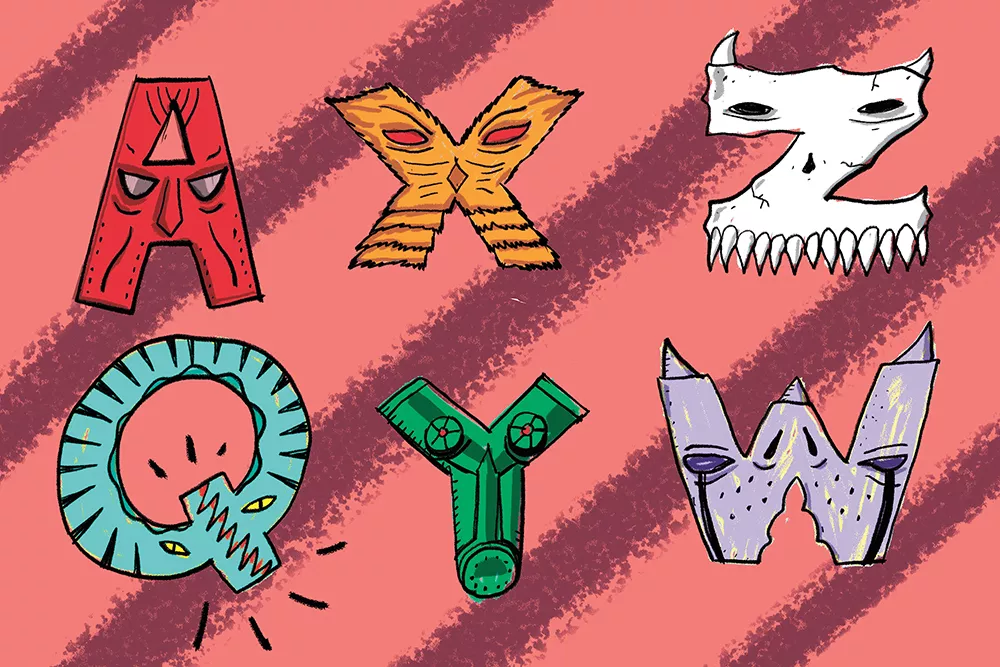"What You Need to Know About the Violent Animals of MS-13," read an official headline on whitehouse.gov in May. When I interpreted the weight of those words, I spun off a little. I threw myself into a frenzied research binge, surrounded by stories confirming my internalized awareness that dehumanization precedes atrocity.
I antagonized over lessons from our history: how calling black folks "soulless humans" enabled brutal enslavement, how the German and Hutu reductions of Jewish and Tutsi people to "untermenschen" and "inyenzi" fostered environments conducive to the horrors of mass genocide. Or most poignantly, how the term "superpredator" created mass paranoia and the false equation of black male bodies as inherently criminogenic, to be feared and removed from society through mass incarceration.
Reading this, you can probably feel a touch of the fervor floating off me. I sensed I was moving too fast, raging, verging on the precipice of convincing myself this democracy is near end times. My eyes strained, body ached, as my fingers furiously flew over keys pounding out yet another warning: words are powerful, they have consequences, we bear responsibility for using them with integrity, we must never use them in a way that may bring harm... . Suddenly, I stopped mid-sentence. I was groping around the edges of understanding the fuel behind this particular fire. Inadvertently, I had stumbled into an age-old truth — that I am most judgmental about those things unresolved within myself.
I too have used words to draw blood.
I once told someone that his love was "like a tornado, destroying everything in its path." He had hurt me, so my words felt appropriately justifiable. I fooled myself into thinking they were providing useful information, but I now see I had designed those words for wounding, not for any real resolution. My aim was to inflict pain without revealing the depth of my own.
Judging by his response, a stunned, faint and agonizing repetition of my words, I no doubt "succeeded" in winning the battle (but certainly not the war). That wouldn't be the first, last or even hundredth sentence that I'd wield as a sword for piercing another's humanity. I have lashed out with countless pointed phrases — from the seemingly polite to the venomous — all carefully crafted for maximum destruction.
While I am committed to doing better, I know that in the face of pain, my typical response is a show of brute force. Vitriolic words are tricky that way — they feel solid, like a strong grab at power, but they often end up as desperate grasps at a false sense of control. After we use them, the inevitable clash ensues, leaving us unfulfilled and with further amplification of an already fragile situation.
Violence begets more violence. Tearing down another has never generated innovative solutions that address root causes but merely perpetuates existing tensions. Harsh responses create narrow tunnels of blame and reactivity that leave us little space to maneuver the real insecurities threatening us. Counterintuitive though it may seem, owning our vulnerability is the genesis of power because it is the birthplace of appropriate action and collective accountability that can lead to true transformation. Sometimes our strongest attack on a problem comes from showing our hand, admitting when something, be it a heinous crime or the decision of a loved one, has so overwhelmed and devastated our foundation that there is no choice but to honestly assess the damage done.
Only in grappling with the full range of destruction and circumstances underlying any breach, do we stand a chance of rebuilding something safe and strong. ♦
Inga N. Laurent is a local legal educator and a Fulbright scholar. She is deeply curious about the world and its constructs and delights in uncovering common points of connection that unite our shared but unique human experiences.


